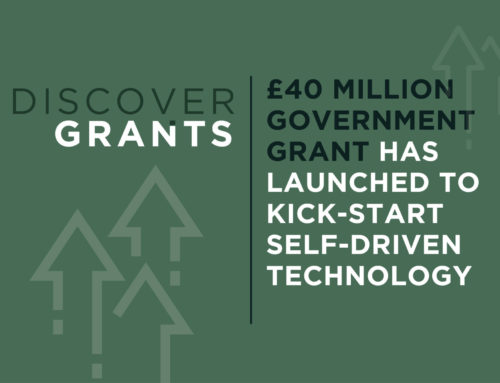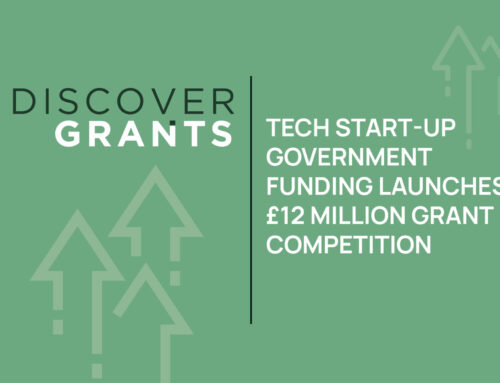Are you looking for grant money? Read this first!
Are you looking for grant money for your organisation, but don’t know where to start? Well, you’re in luck!
In this blog, we’ll tell you everything you need to know about winning a grant. Keep reading to find out more!
What are the benefits of securing a grant?
-
You don’t need to pay it back
One of the biggest advantages of winning a business grant is that you don’t have to repay the grant money. So, essentially, you can look at grants as free money. This is great news for start-ups, self-employed business owners and SMEs. Instead of being faced with loan repayments and high interest rates, you can focus your attention on growing your organisation.
However, you should note that certain business grants will require you to match the amount with your money. For example, if the funder is awarding £1,000 for a project, you could be expected to contribute the same amount. So, before you apply for a business grant, make sure you’re able to do this.
-
It can lead to future funding
Another benefit of securing a grant is that it can lead to future funding. When you receive grant money from one funder, this shows other funders that you’re worth the investment. So, you’re more likely to win future funding opportunities which, ultimately, means more grant money in the long run. This is also referred to as the “waterfall effect”.
-
Grants can boost credibility
Winning a grant can boost your organisation’s credibility. This is because it shows that the funder has faith in your project, idea, or research. It could also help promote your business, leading to more exposure and increased visibility. As a result, you could pique the interest of other funders, which could lead to future investment opportunities.
What are the different types of grants?
-
Direct grants
This type of funding is usually given to small businesses and start-ups that are looking for grant money. Direct grants can be used to cover any essential costs, such as new equipment, training, or research.
With most direct grants, the recipient is required to match the value of the grant (as stated above). For example, if the funder awards you £1,000 in grant money, you’ll need to provide £1,000 of your own money. Therefore, it’s important to keep this in mind if you’re considering applying for a direct grant.
-
Equity finance
With equity finance, individuals will sell a share of their business in return for grant money. An example of this type of scheme is the Seed Enterprise Investment Scheme. With this scheme, businesses are offered up to a 50% reduction in income tax. To be eligible, businesses must be less than two years old, with fewer than 25 employees.
-
Soft loans
If you’re looking for grant money, you might be interested in a soft loan. While this money will need to be repaid, it is still an appealing option for start-ups and SMEs. They differ from regular loans, and usually have lower interest rates and flexible payment plans. This allows new businesses to make affordable payments.
What can grant money be used for?
It’s important to remember that the grant money you receive can only be used for the purpose of the grant. For example, if you apply for a grant for your research project, you can’t use the funding for living expenses. That’s why it’s really important that you check the grant documents before you actually apply for the funding.
There are several ways that you can use grant money. Here are just a few examples:
- To start a business – There are many grants available to help start-up businesses get off the ground.
- For growth and expansion – Grant money can also be used to aid growth and expansion for SMEs.
- To fund innovative ideas – Some grants are focused on helping businesses fund their innovative projects. This could include anything from product launches to new services.
- For charities – There are grants available that are aimed at charities and non-profit organisations. Depending on the funder’s conditions, the grant money can be used for a wide variety of things. This could be anything from delivering services to the community to marketing your organisation.
How can you increase your chances of winning grant money?
-
Make sure the grant is suitable for you
Before you can win grant money for your organisation, you need to find a suitable opportunity for you. To do this, you could ask yourself the following questions:
- Do the funder’s aims and objectives align with yours?
- Are you actually eligible to receive the grant money?
- Do they offer the amount of funding that you require?
Not only should you assess whether the opportunity is right for you, but there are other factors to consider too. For example:
- Applying for grant money can be incredibly time-consuming. Do you have time to submit the grant application before the allotted deadline?
- Do you have a backup plan? Grants are extremely competitive, so it’s important to consider your other options for funding in case you’re unsuccessful.
- Does the grant money cover all of your costs? For example, you might be expected to match the amount with your own money. If that’s the case, are you in a position to do that?
-
Digest ALL of the grant documents
Although it can be tempting to briefly scan the grant documents, it’s important that you read and digest every page. Whether the document is one page or 50 pages, you need to take in all the information.
Without reading the grant documents, you run the risk of missing important details that could impact your chances of success. For example, there could be certain prerequisites that you need in order to be eligible for the grant money. Failing to read the documents could mean you’re submitting a funding application with crucial elements missing. If that’s the case, you’re unlikely to secure grant money for your organisation.
-
Produce an effective business plan
As we’ve already established, grant money can only be used to fulfil the purpose of the grant. Therefore, to ensure the funder knows how you plan on spending the money, you should produce an effective business plan. This will make it much easier for them to assess your business.
To increase your chances of success, it’s important to tailor your business plan to each opportunity that you apply for. However, as a general rule, you could include the following:
- Your mission statement
- Products and services
- Information about your company
- Your employees
- Financial information
- Growth plans
- USP(s)
- Target audience or customers
- Achievable milestones.
-
Start applying early
Simply put, the earlier you apply for grant money, the better. You’re more likely to win the funding if you apply when the opportunity first launches. This is because there is more money available in the earlier stages, and you’ll be faced with less competition.
It will also give you more time to produce your grant application. Remember, the grant funding process can be difficult to navigate – not to mention time-consuming. So, the more time you give yourself to complete your application, the higher your chances of success.
In summary
There are many benefits of securing grant money for your business, including:
- You don’t need to pay it back
- It can lead to future funding through the waterfall effect
- Grants can boost your credibility.
There are different types of funding that your organisation could go for, such as:
- Direct grants
- Equity finance
- Soft loans.
Grant money can be used for different things, and this will be outlined in the grant documents. However, examples of this could include:
- To start a business
- For SMEs
- To fund innovative ideas
- For charities.
Finally, remember our top tips for securing a grant for your organisation:
- Make sure the grant is suitable for you
- Digest ALL the grant documents
- Produce an effective business plan
- Start applying early.
Our services
Grant Writing
Our Grant Writing Service is for businesses who want to start applying for grants, but don’t know where to begin. They can also help businesses who have been applying for grants but aren’t seeing success.
Our Grant Writing Consultants have over 60 years of experience in bidding for funding and grants. From start-up business grants to self-employed business grants. They can take care of the whole thing for you – they’ll even submit it on your behalf.
Get in touch to find out how we can help your business grow!
Grant Tracker
You can find grants on our Business Grant Tracker. Currently, we have over 1,700 live business grant and funding opportunities. Our team have manually tracked 1,500+ data streams searching for business grant opportunities. Each one is then uploaded to one central system, streamlining the process.
All you need to do to gain access is sign up for free.





